First Break: Bipolar Depression
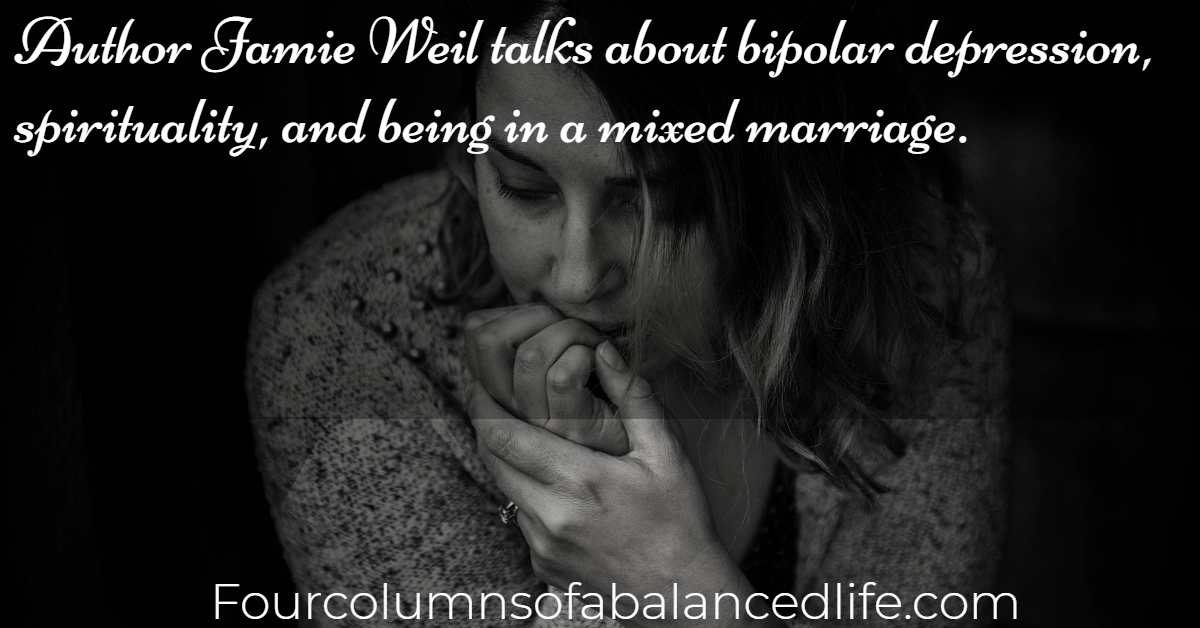
Bipolar depression is serious and should not be ignored.
I was born in India and at a very young age my parents moved to Dubai. I did my undergrad and masters in two different countries of Europe. I presently live in Canada, which is the fifth country I have lived in. At an early stage in life, I stopped seeing color. I am in a mixed marriage. I will never forget at a dinner party at my friend’s place, someone asked me how it feels to be married to a white woman. It threw me off.
I will never forget the day I got home from work and my wife told me that my best friend’s wife had called her saying she was leaving her husband. She also told her that she was bipolar. I had known him for such a long time. Was he ashamed of her bipolar depression?
In the first interview, I talked to Jamie Weil about her mission, vision, youth mental health, balance, and creating sacred spaces in our lives. In this interview, we talk about bipolar depression, spirituality and being in a mixed marriage.
Jamie Weil lives in Cottonwood, California. She writes everywhere. She has identified as a writer since third grade when her teacher sent her poem “Red” to the Record Searchlight and they published it. She has written for the children’s educational market, the adult non-fiction market, and has worked as a journalist, second-grade teacher, and mom. Her YA novel, First Break, was released on World Mental Health Day, 10/10/18. Her second YA novel “Intuition” was published almost exactly a year later on 10/2/19. She is currently in post-production on the pilot episode of “A Crazy Thought,” a groundbreaking docuseries on youth mental health and suicide which she is creating with a team of amazing award-winning female filmmakers.
Jaime, I have been in sales all my life. I am an extrovert. I will never forget, one evening I came home, and one of my best friend’s wife had called my wife saying she was leaving her husband and that she was bipolar. I had never heard that word and did not know much about depression. Talk to me about this disorder?
Wow. That’s a hard call to get!
I think I’m more “vert” fluid. An ambivert maybe. Or, an introvert masquerading as an extrovert. I love people, but I hate surface talk. HATE it. As a psychic empath, I also pick up everybody in the room and have to consciously not do that which is tiring. I charge up in my red writing chair where I can be alone with my heart, my mind, my guidance team. If I’m in groups too much or miss this daily alone time, I get off balance. It’s like a Tesla station and if I don’t plug in, I’m stuck in the middle of the highway needing a tow.
I admire people in sales because they have such a natural proclivity for identifying needs and figuring out how to meet that need. I’m much better at that psychically at a distance than in person. I’m less distracted. I’m definitely a one-on-one person but have good friends who just love group activities. Sometimes group play is very fun, but mostly I just avoid it.
To circle back to bipolar, like any label given to any brain illness, it varies greatly from person to person. It’s a biological disease that does not, in my mind, seem to still be greatly understood to this day. It can range from a very mild case to a deadly case. Diagnosing bipolar in children and teens is complicated for a variety of reasons, and still takes an average of two years (in our case 10!) to call it by this name. In children/teens, it looks very different than it does in adults, one of the reasons it’s hard to diagnose. Mental illnesses correlate to early trauma and high ACES scores (Adverse Childhood Experiences Score) but also can onset in cases outside high ACES. It doesn’t discriminate in any way meaning anybody from any place can have it. The list of criteria to be called bipolar illness (some think the word disorder is stigmatizing so I avoid that word choice) is found in the psychiatric diagnoses bible, the Diagnostic Statistics Manual (DSM). We are currently on the 5th version and the thing is outdated pretty much after it comes out because we are learning so much more about the brain than we have before. Additionally, it takes so long for a revision, 14 years between DSM4 and DSM5. So many changes.
The reason, perhaps, you had never heard of bipolar illness is that we are not educated about mental illnesses in early elementary and middle schools. In my Master’s in Teaching with CLAD Certificate (K-8, Crosscultural, Language, and Academic Development) I was at a great school for teacher training, the original in Los Angeles, and did not receive one class on mental illness in the classroom, specifically what it is and how to handle it. My training came in my own home, my own independent study/residency, and on the job. This is the case for many teachers so without curriculum and teachers who don’t understand what is happening, half of the classroom is deeply suffering and half is completely oblivious. Some teachers I know who are aware for personal reasons say their middle school classrooms are 75% early-onset mental illness though the statistics will say that’s too high. I tend to believe the teachers and my own experience with parents. This is why I would like to put First Break in middle schools across the world. I had a plan called Mission ACT to integrate the novel which includes both Common Core and state standard questions in the back matter, some visual media first-person stories, and curriculum to help teachers easily integrate into their language arts curriculum. If we teach them early enough, we won’t have the same issues ten years from now.
The most important thing to know about bipolar illness is that it has a very high correlation with high-risk behavior and suicide so is extremely important to identify in the early stages and put a plan in place. In young people, its earliest phases it looks like anger, odd behavior that doesn’t sit right, huge energy shifts, suicide ideation, extreme behaviors and reactions, extreme intelligence and creativity, magnetic personality, often the adoption of drug usage (to quell the symptoms, including hallucinations which come into play at times), and one super key point: sleep is a major challenge! One reason for this is night terrors which are such an intense form of a nightmare the person learns to hate sleeping. Also, it’s just very, very difficult to sleep. In my novel, Paige starts to stay up repeatedly until finally, she is so tired and paranoid, she takes her dormmate’s Ambien which lands her in the ER. This is a very common path. Keep in mind, the above list is my own key list from watching many young people go through psychotic breaks and not the official DSM5 list which you get on a Google search.
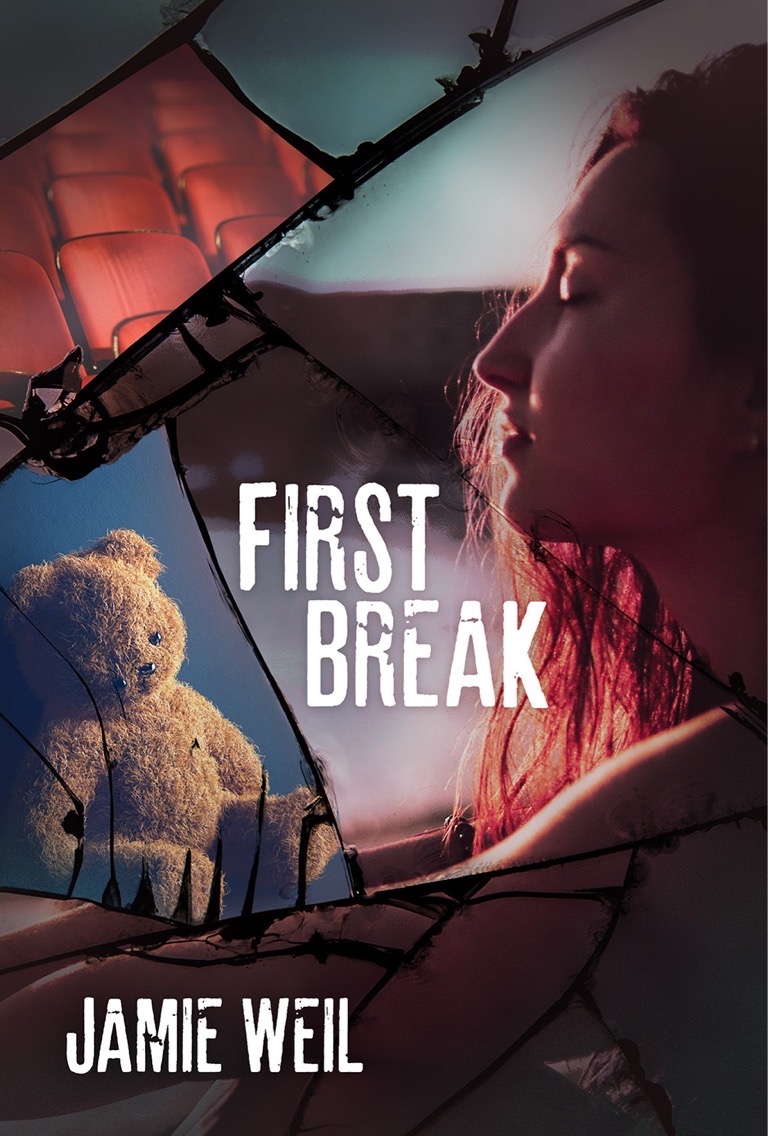
I am a big fan of becoming aware of cognitive dissonance. My goals, values, and ethos are aligned with everything I do. I am now learning to get my heart, mind, and body aligned. Walk me through what is spirituality for you?
That’s awesome, Jerry! I recently had an older friend, nearly 70, proudly say he’d learned to “compartmentalize.” He said it like it was a good thing. It made me very sad. I feel the path to personal fulfillment, to self-actualization in Maslow’s hierarchy of needs, starts with integrating all parts of ourselves and sharing that with the world. For me, I am here on this planet to become conscious of consciousness. It’s why I spent four years studying to become a practitioner. It’s why I love to study Joseph Campbell’s work and see the stories running through all the stories, the repeating stories in the religions that give so many the faith that makes them whole, that gives them purpose. I love Carl Jung’s ideas on how synchronicity works as a guide to show us our True North, how sleeping dreams can guide us in our waking hours, and the idea that we are all connected.
I grew up in a non-religious home but in a very religious town. All my friends were worried I was going to hell (I think they still are!) so they invited me to church. Church meant donuts and I liked donuts so I went. If I missed a Sunday, the teacher would call my mom and remind her I was going to hell, especially since I missed a Sunday. Threats aside, there were parts of the church I liked. I loved the singing. I still love the singing. I love the energy of the Divine that lives in all the churches, the temples, the synagogues, the mosques, the centers. I’ve visited them all. I’ve gone on silent retreats in Buddhist temples (I have a chapter on dusting the Buddha in Chasing Sacred Spaces!), I’ve sat through 26 years of Seders with my husband’s family, I’ve celebrated at the Bahai Center, I’ve walked the home of Paramahansa Yogananda in Pacific Palisades, CA at the Self Realization Temple. When I found the Centers for Spiritual Living on complete intuitive guidance, I began taking classes and realized that perhaps the reason for my unexplained love for Ralph Waldo Emerson (other than his great-great-grandson was my first kiss) was that Transcendentalism was my first love. I had studied all the great writers during that era in my English Lit time at UCLA and loved the integration of that day with the art. During my four years of practitioner training, I became a Reiki practitioner, a Past Life/Future Life Regression therapist, a junkie for workshops that specialized in intuition, dreams, land healing, and so forth.
Spirituality, then, for me is not a place, but I can find it in a place. It’s not just nature, but in the forest and especially the ocean I find God. It’s not a list of rules and consequences meant to shame me in abiding by them if I want the carrot promised, but rather love in all things to all beings no matter what. It’s not forcing my position on others, but rather listening with the ear behind the ear to the stories that shape their beliefs and finding the beautiful threads that weave the tapestry of our humanity. In Canada last year, I had registered for the gathering of the World’s Religions, but in the end, couldn’t go. I thought that event would be fascinating to see the beauty of the human family sharing their most precious traditions with each other.
Above everything else, love–like for real I-see-you-no-matter-what love–is my spirituality, religion, whatever label you like.
How did marriage and motherhood change you?
I have been a mother for most of my adult life. I married my college boyfriend during our last year of college over winter break. He was a black man from New York, and I, having grown up in a small, white rural California ranch town, was fascinated by his worldview. We were deeply in love, but neither of us was prepared for marriage. A year later I had my oldest son at 23, a separation, and restraining orders due to domestic violence. It was a tough time, but it strengthened me, and created a bond between my son and I that single parents have.
After an exhausting few years of dating, I began a relationship with my current husband who is Jewish. We had been friends since my freshman year. My son really liked him and convinced me to marry him. I wasn’t sure how the whole thing would work because I barely knew what I was doing on my own raising a child, specifically a biracial child, whom the world saw as black. I didn’t want to mess it up and my self-confidence was at an all-time low due to my first marriage. Still, we decided after several years of dating to marry, added our younger son to our family a year later, and were featured one Christmas Day in Torrance, California on the front page of The Daily Breeze for our multicultural family that celebrated Christmas, Hanukkah, and Kwanzaa.
Having been a mom now for 33 years, and having been married for the past 23, I can’t tell you how marriage and motherhood changed me because I can’t remember what I was like before. I will tell you this: my work, my writing, my community service is all influenced by my children. (My oldest son likes to call himself my Muse.) Understanding how to help my children thrive as adults in the world who give back while living their bliss has been my focus and mission for the past three decades. Three years ago, when my youngest son left for university, I started to launch into projects full bore I had been seeding but holding back on until they were both launched. These projects were inspired by them.
My marriage has pushed and pulled me in so many ways. Remember Stretch Armstrong? Just like that.
Last week we celebrated our 38/26/23 anniversary. (Friends, dating, married.) When you have that many years together, and you come from very different backgrounds as we do and are catapulted into a container of a readymade family, it’s not easy. I’m always suspicious of people who say it’s easy. Over time, I have had to really look at my own shadow, my own family of origin issues, my threads and patterns that I bring to the table. There is no better person than your spouse to mirror these shadows back to you through triggers, through waxing and waning periods, through tragedies and celebrations. I have grown in ways I know I could not have never grown outside the container of family and marriage.
One of the great joys is being able to share in the lives of our children which was missing in the single-parent model, or at least it was for me. That was such a lonely hole to see my child take his first step and have nobody to share that accomplishment. Partnership amplifies those moments in such a magical way. Another great joy I have from marriage is one my husband and I have cultivated that comes from instituting date nights when our youngest was born and our oldest was having early onset symptoms with bipolar illness. It was a stressful time and we decided it would be cheaper to take every Saturday night and go out than it would get divorced. Even now with the kids gone, we still do this, as well as take quarterly retreats together where the main objective is to have fun. We don’t discuss any hot potato topics. We just have fun, and we’re just really good at it.
Bottom line: marriage and family are like the Ph.D. program in the Earth School. No place else do you learn as deeply.
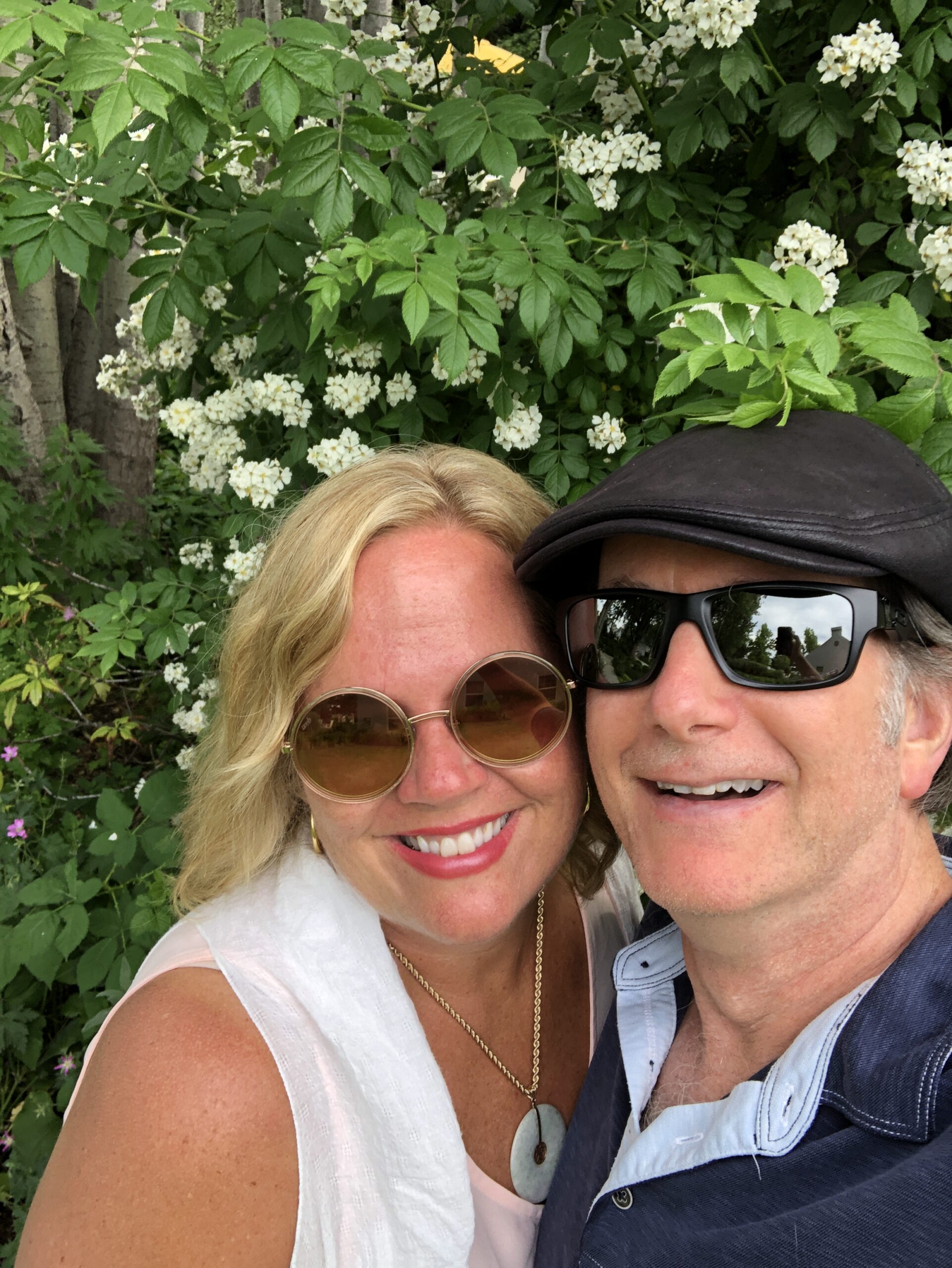
Walk me through your experience in a mixed marriage and raising a son who is black?
What’s so fascinating here is that just when I think I understand something, I understand how little I understand the thing I thought I understood. The BLM Movement has taught me this.
Racism in America has been on my radar since I was young growing up in a town that was primarily white. That town has a sign that says No Room for Racism, but there’s a bullet hole through it so there you go. The town, like many small towns across the country, is split between those who are curious and embracing ideas and people different than their own and those who are terrified by that.
I was always curious and was raised to be embracing, not fearful. When I went to UCLA, a very diverse campus, I was so excited to discover so many different people and cultures. My world was cracked open in such an amazing way. I took classes on Asian American literature, African American music, and race/ethnicity. I explored every kind of cuisine I could get my hands on and tried to get myself invited to Armenian weddings, Bahai celebrations, anything I hadn’t seen before.
But as my ex-partner and I would walk through the streets of a very diverse Venice Beach, California in the 80s, people would skate by, address me and call me “N-word lover.” I would see him treated by the police in a different way than I was used to being treated by them. There were such levels of prejudice directed at both of us from both black and white people it was hard to even understand it.
When my son was born, and I would carry him, I would often get the double-take. Even though he looked just like me because his skin was darker they were confused and I’d get a variety of reactions. I had no guidance, no family where I was in Southern California, and so I researched organizations to join like MASC which stood for Multiracial Americans of Southern California where maybe he could make friends that were biracial, too. I didn’t even get the fact the world just saw him as black and nobody really explained that to me. My son did not like those gatherings and honestly, when you have all the tasks of raising a child alone and paying for that child’s needs alone, there is very little time for any add-ons. We tried black churches (which I loved and he hated), tried to make friends with other mixed families (epic fail), and finally, I think we just stopped focusing on it.
As he got older, and I married my current husband, we moved into a gated community that was primarily Asian and his classmates were mostly white beach city kids. Until recently, as I educate myself more about Black Lives Matter, and listen to Black families opening up in ways I have never heard before, I felt like our approach was okay. However, recently I texted him and told him I felt like such a failure as a parent because I hadn’t had the police talk which apparently many black families have from early on with their children. I felt like I should have known that, but I didn’t.
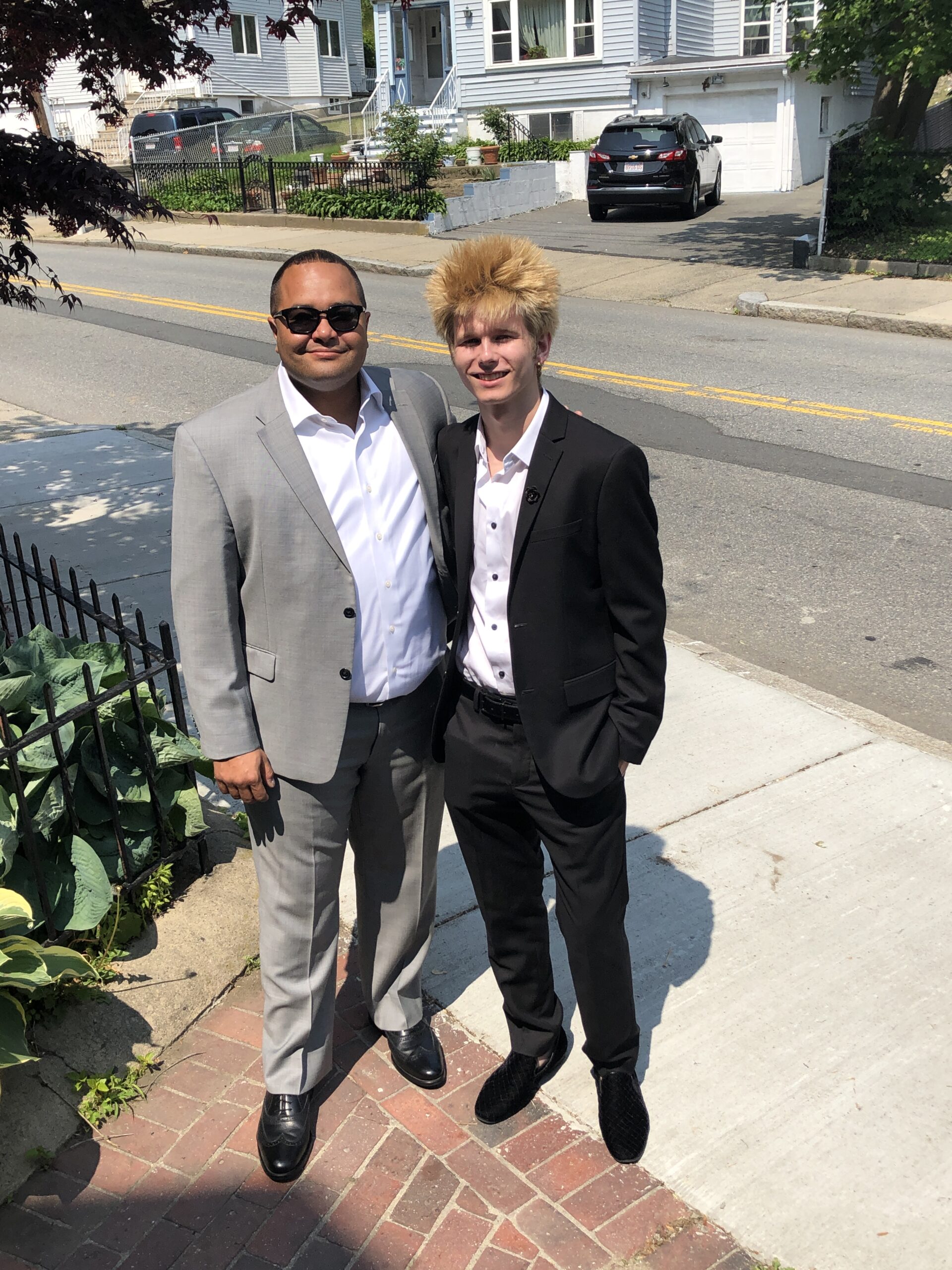
My youngest son, white as they come with his blue eyes and blond hair, thought of himself as black for his first ten years because his brother was black. He could not sit through a movie of racial discrimination without becoming deeply upset as a child, and to this day educates me in ways that I can better understand how I can help as a white person is in this racial epidemic where we all play a part. But I am still learning. My daughter-in-law (white) recently sent me a podcast on Black Mental Health history in America that gave me such a better understanding of the comment that I used to hear from my ex which went something like “Mental illness is a white people thing. It’s hard enough to be black in America. We don’t have time to add that in.” I always thought that was short-sighted, but the more I learn, the more I understand the insight and complexity of that statement.
Here’s the thing about parents and children. We all just want to keep our kids alive, safe, and have them thrive, find their joy, be productive citizens, and make the world a better place. At least, that’s what I want. There is no playbook that comes wrapped up in the burrito when the baby is handed to you. You just do the best you can, try and stay open and true to who they are as a Soul, pray and cross your fingers simultaneously that you don’t mess this up. Rinse, lather, repeat.
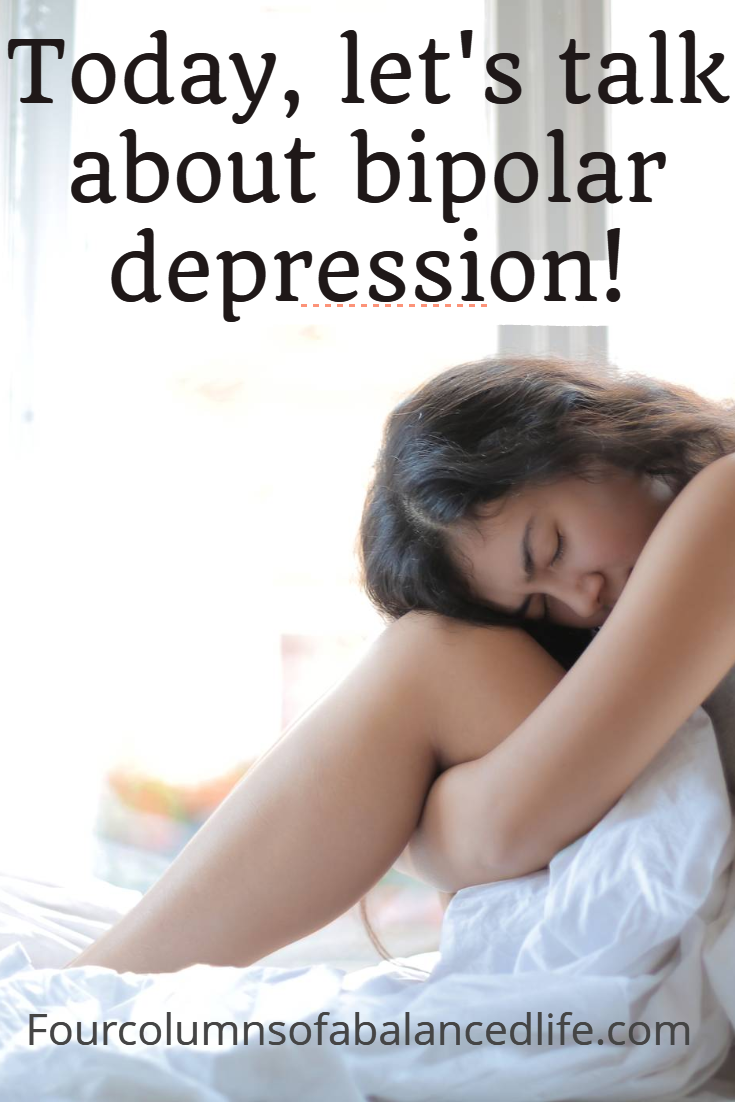

1 thought on “First Break: Bipolar Depression”